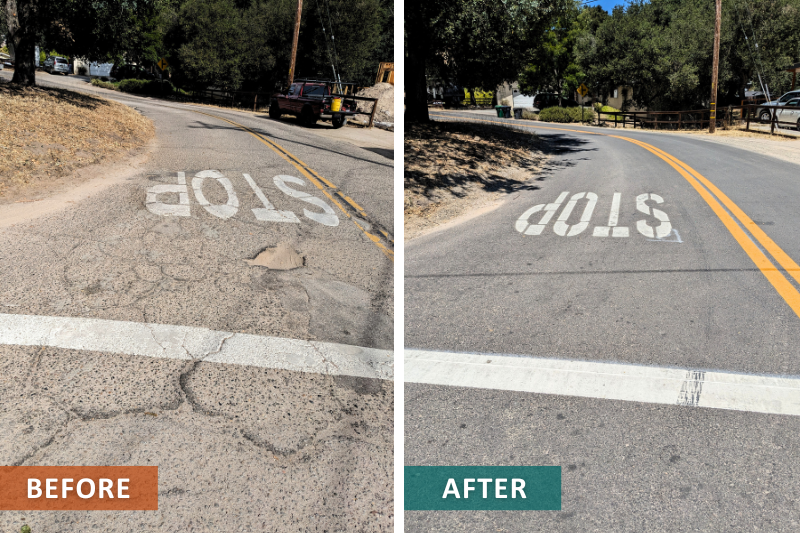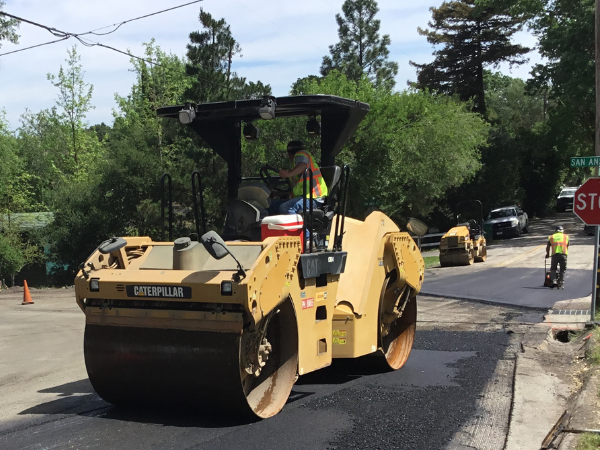In 2014, Atascadero voters approved a ballot measure (F-14) which authorized the City to increase its sales tax rate by a ½ percent for a term of 12 years, together with a measure (E-14) advising that the funds be primarily utilized for maintaining and repairing neighborhood roads. Measure F-14 generates approximately $3 million per year in general fund revenues, which is 9-10% of the City's annual budget. While the City will continue to maintain and improve arterial roadways, funds approved under Measure F-14 are specifically earmarked for the improvements of neighborhood roads. The measure includes a nine-member Citizen Oversight Committee tasked with reviewing revenues, expenditures, and the annual road report.

Since that time, Measure F-14 has funded:
- Nearly $21.4M in neighborhood road repair.
- Resurfacing or rehabilitation 50+ miles of neighborhood roads (39% of all City-maintained streets), including the removal and replacement of asphalt on full roadway sections where needed.
- 80+ neighborhood road segments have been repaired.
- Improved drainage & roadside slope stability.
Aided by the funds received from Measure F-14, the City's overall pavement condition index (PCI) has increased by 9 points, from 47 to 56 - a significant increase from the expected 17-point decrease if Measure F-14 had not passed in 2014.
In 2024, voters approved Ballot Measure L-24, extending the Measure F-14 ½ percent sales tax rate for repairing neighborhood roads, infrastructure and other vital general government needs, until ended by voters. Measure F-14 revenue will be collected until it sunsets on March 31, 2027. Starting April 1, 2027 Measure L-24 revenue will be collected.
Atascadero Roads
The City of Atascadero owns and maintains approximately 150 centerline miles of public roadways. This extensive system is the backbone of housing, commerce and recreation within the community and its repair and maintenance is a top priority. In order to compare all roads within a system, each roadway is inspected and a Pavement Condition Index (PCI) number is assigned. The overall PCI rating of Atascadero’s roadway system is 50 on a 100-point scale. With a current asset value of nearly $300 million, developing a pavement management strategy to provide the lowest life cycle cost over time and save the City funds in the long run was vital.
In order to accomplish this, the City has implemented a “Critical Point Management”methodology. This methodology selects roadways which can have their useful life extended the longest with cost effective maintenance and less expensive repairs. The longer a road can be kept in good condition, the lower the overall cost of its treatments.
In many ways the Critical Point Management method is similar to how you would maintain your car. By focusing on relatively inexpensive routine maintenance and repairs at key times, you can avoid expensive repair bills and breakdowns in the future. When pavement conditions deteriorate, the cost to fix roadways increases substantially. Replacement of a failed street can cost 30-40 times the amount required to maintain a road in good condition!






